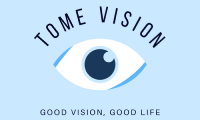Bifocal vs Trifocal Lenses: Which Is Best for You?
When it comes to visual impairments caused by presbyopia, a condition resulting in the loss of near vision, bifocal and trifocal lenses are popular options for correction. However, choosing between the two can be a difficult decision. This article aims to explore the differences between bifocal and trifocal lenses, helping you make an informed choice about the best solution for your needs.
Understanding Bifocal Lenses
Bifocal lenses are designed to correct both near and far vision by incorporating two distinct optical powers within a single lens. This means that bifocal lenses have one section for distance vision and another segment for near vision. Usually, the near-vision section is located at the bottom of the lens.
The primary advantage of bifocal lenses is their ability to provide clear vision at both distance and close range without the need to switch between two pairs of glasses. They are ideal for individuals with presbyopia who also suffer from myopia, hyperopia, or astigmatism.
However, it’s worth noting that adjusting to bifocal lenses may take some time. The transition between the two optical powers is sudden and can be disorienting at first. Additionally, intermediate vision, such as viewing a computer screen or reading music, can be less clear with bifocal lenses.
Understanding Trifocal Lenses
Trifocal lenses, as the name suggests, expand on the bifocal concept by incorporating a third optical power for intermediate vision. Similar to bifocal lenses, trifocal lenses have a clear distance vision section at the top and a near vision segment at the bottom. However, they also have an intermediate vision segment located in between the two.
The key advantage of trifocal lenses is their ability to provide clear vision at multiple distances, including intermediate ranges. This makes them ideal for individuals who frequently engage in activities that require clear vision at computer distance, such as office work or extensive digital device usage.
Though trifocal lenses offer a more comprehensive vision solution, they may take longer to adapt to than bifocal lenses due to the additional optical power. Additionally, the intermediate segment may be smaller compared to the distance and near segments, leading to slight compromises in overall vision clarity.
Choosing the Right Option for You
To determine which option is best for you, it is essential to consider your specific visual needs and lifestyle factors. Here are a few questions to help guide your decision-making process:
1. Do you perform tasks that require frequent intermediate distance vision, such as extensive computer usage?
2. Are you comfortable with a potentially longer adaptation period?
3. Do you prefer a more comprehensive solution despite potential slight compromises in overall vision clarity?
If you answered yes to the first question and are willing to invest time in adjusting to the lenses, trifocal lenses may be the better choice. However, if your primary concern is clear vision at distance and near ranges, and you are less concerned about intermediate vision clarity, bifocal lenses may be a more suitable and cost-effective option.
In summary, both bifocal and trifocal lenses offer solutions for correcting presbyopia. Understanding the differences between the two and considering your specific needs will help you make the right choice. It is advisable to consult with your eye care professional to determine the best lens option for your unique visual requirements.
Here are some important points to consider:
– Bifocal lenses have two distinct optical powers, while trifocal lenses have three.
– Bifocal lenses are ideal for individuals with presbyopia who also have myopia, hyperopia, or astigmatism.
– Trifocal lenses provide clear vision at multiple distances, including intermediate ranges.
– Trifocal lenses may take longer to adapt to than bifocal lenses.
– Trifocal lenses are suitable for individuals who require frequent intermediate distance vision.
– Bifocal lenses are a more cost-effective solution for individuals who primarily require clear vision at distance and near ranges.
– It is recommended to consult an eye care professional to determine the best lens option for your specific needs.
